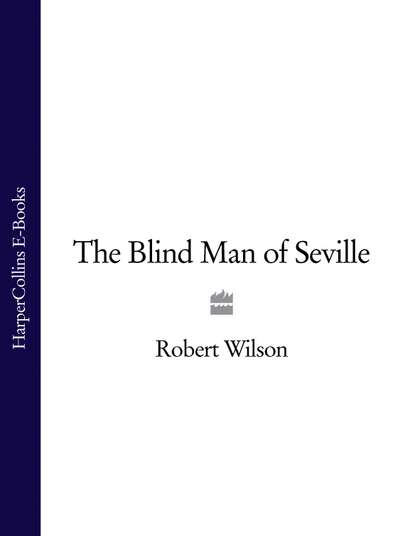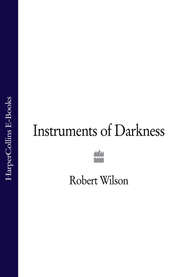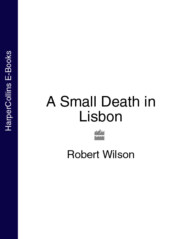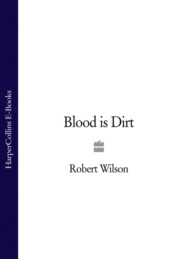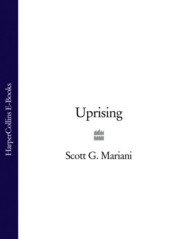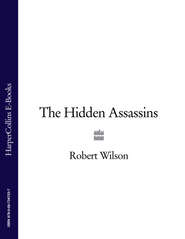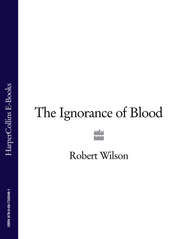По всем вопросам обращайтесь на: info@litportal.ru
(©) 2003-2024.
✖
The Blind Man of Seville
Автор
Год написания книги
2018
Настройки чтения
Размер шрифта
Высота строк
Поля
‘I’m a Sevillano.’
‘Then you must have been abroad for a long time to learn your … gravity.’
‘I was in Barcelona for twelve years and four years each in Zaragoza and Madrid before I arrived back here.’
‘It sounds as if you’ve been demoted.’
‘My father was ill. I asked to be transferred to be close to him.’
‘Did he recover?’
‘No. He didn’t make it to the new millennium.’
‘We have met before, Inspector Jefe,’ she said, stubbing out the cigarette.
‘Then I don’t remember.’
‘At your father’s funeral,’ she said. ‘We are talking about Francisco Falcón.’
‘You couldn’t believe it before,’ he said, thinking: Let’s see how this changes your tune.
‘Was that who you were looking for in the photographs?’ she asked, and he nodded. ‘You wouldn’t find him there. He was not Raúl’s kind of celebrity. He never came to any of the restaurants. I doubt they knew each other. I went to the funeral because I knew him. I own three of his paintings.’
He imagined his father with Consuelo Jiménez. His father had liked attractive women, especially if they bought his stupid paintings … but this one? Maybe that would have interested him. The showy, slightly tacky dresser with a razor tongue and a well-honed intuition. The usual crowd who bought his paintings always tried to say something ‘intelligent’ about them, when there was nothing intelligent in them. Consuelo Jiménez wouldn’t have done that. She would have found something different to say to his father, perhaps made a personal observation, even attempted a small perception, which most people, standing under the fierce reflection of his colossal fame, would never have dared. Yes. And his father would have risen to that. Definitely.
‘So you were completely involved in your husband’s business affairs?’ he said.
‘What happened to his house on Calle Bailén?’
‘I live in it,’ he said. ‘And you would know if your husband had any enemies.’
‘On your own?’
‘Just as he did,’ said Falcón. ‘Your husband … he must have trodden on people on his way up to the top. There are probably people out there who would …’
‘Yes, there are people out there who would gladly see him dead, especially those he’d corrupted and who are now free from the weight of their obligation.’
She flicked a derisory fingernail at the functionary end of the photograph gallery.
‘If you know something … it would help.’
‘Ignore me. I’m being facetious,’ she said. ‘If there had been any corruption I would not have known about it. I ran the restaurants. I designed the interiors. I organized the flower arrangements. I made sure the produce for the kitchens was of the highest quality. But, as you can probably imagine, even without knowing my husband, I did not make contact with a single peseta of real money, nor did I deal with any of the powers, legal or otherwise, who let Raúl build, who licensed him, and who made sure there were no … unforeseen circumstances.’
‘So it is possible that …’
‘Very unlikely, Inspector Jefe. If something goes wrong in that department the stink soon gets into the restaurants and nothing reached my nose smelling that bad.’
Falcón decided he’d let this woman run free for long enough. It was time she understood what had happened here. Time she stopped looking at this as a news item that didn’t affect her. Time to bring her inside.
‘Your husband’s body is undergoing an autopsy at the moment. In due course we will have to go to the Instituto Anatómico Forense for you to identify the body. You will see for yourself that your husband’s murder was extraordinary, more extraordinary than any I have seen in my career.’
‘I saw the killer’s little production for myself, Inspector Jefe. To spy on a family like that you would have to be profoundly disturbed.’
‘You happened to see the last few moments of the video when you first arrived. Perhaps you were not aware of what you were looking at,’ he said. ‘Your husband was entertaining a prostitute in here last night. The killer filmed it. We think that he may have got into this apartment much earlier, around lunchtime, using the removals company’s lifting gear, and that he was hiding in here, waiting for his moment.’
Her eyes widened. She grabbed for the cigarettes and lit up, spanned her forehead with her hand.
‘I was here yesterday afternoon with the children before we went to the Hotel Colón,’ she said, on her feet now, pacing the length of the desk.
‘We found your husband sitting in the twin of that chair,’ said Falcón, not taking his eyes off her. ‘His forearms, ankles and head had been secured with flex. He was barefoot because his socks had been used to gag him. He was being forced to watch something on the screen, something so horrific to him that he fought with all his strength not to see it.’
As he said this it occurred to him that it was only half true. The on-screen horror might have been the start of it, but what made Raúl Jiménez writhe convulsively was coming round in agony to find that a madman had cut his eyelids off. After that he’d have known there was nothing to lose and he’d have fought like a dog until his heart gave out.
‘What was he being forced to watch?’ she asked, confused. ‘I didn’t see …’
‘What you saw had a certain amount of horror for you personally. Being stalked is creepy, but it’s not something that you would fight to the point of self-mutilation not to see.’
She sat down straight in the chair, knees pressed together like a good little girl. She leaned forward, grasping her shins, holding herself in.
‘I can’t think,’ she said. ‘I can’t think of anything like that.’
‘Nor can I,’ said Falcón.
She drew on the cigarette, spat out the smoke as if it was disgusting. Falcón searched for any hint of pretence.
‘I can’t think,’ she said it again.
‘You have to think, Doña Consuelo, because you have to go over every minute that you spent with Raúl Jiménez plus everything you know about his life before you met him and you must tell it all … to me and then perhaps between us we can find the small crack … the …’
‘The small crack?’
Falcón’s mind went blank. What crack was he talking about? An opening. A chink. But into what?
‘We might find something that will give us an insight,’ he said. ‘Yes, an insight.’
‘Into what?’
‘Into what your husband feared,’ said Falcón, losing his thread.
‘He had nothing to fear. There was nothing frightening in his life.’
Falcón reined in his thoughts. His fear? What was he thinking of? What was this man’s fear going to tell him?
‘Your husband had certain … tastes,’ said Falcón, fingering the pack of Celtas. ‘Here we are in one of the most prestigious apartment buildings in Seville, or at least they were fifteen years ago …’
‘Which was about when he bought it,’ she said. ‘I never liked it here.’
‘And where were you moving to?’





